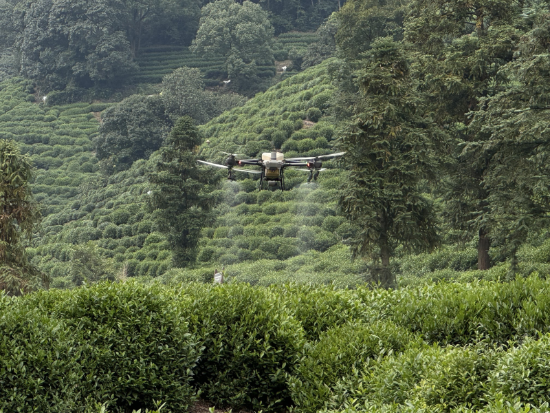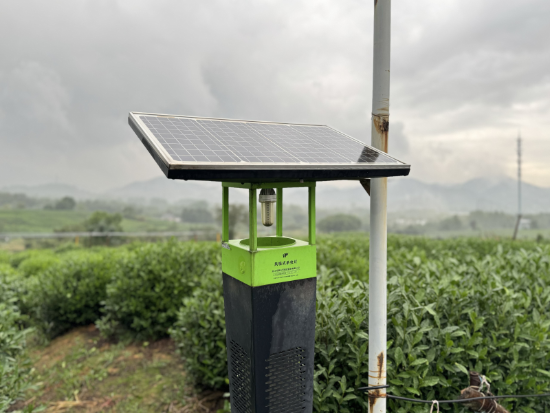
A drone works to distribute organic fertilizer. [Photo/hangzhou.com.cn]
Thirty tea-producing villages in Zhuantang, Hangzhou's Xihu district, recently received over 1,190 metric tons of organic fertilizer. This year, for the first time, drones were used to transport the fertilizer, delivering up to 8 tons per day across 2 hectares of tea fields, significantly boosting productivity.
Zhuantang is the main production area for West Lake Longjing tea, boasting three-quarters of the district's 1,060 hectares of tea gardens. The district has been building ecological tea gardens for over a decade, and this year's advancements, including drone-based plant protection, have drawn widespread praise from local farmers.
"Drone spraying is much better this year, and the quality of the organic rapeseed cake fertilizer has also improved. We're all very happy!" said a villager from Tongwu village.
Since 2018, Xihu district has employed drones for large-scale pest control and distributed organic fertilizers to improve soil quality and tea production. Zhuantang's continued innovations, including the detailed tracking of drone flights and optimized pesticide use, have made the process more efficient while reducing labor costs.
Additionally, green tea-farming technologies like eco-friendly pest control lights have helped cut pesticide use by 58 percent, enhancing the environmental sustainability of the tea gardens. These efforts are helping to solidify the brand of West Lake Longjing tea as Zhuantang continues to promote traditional craftsmanship and expands the market for high-quality tea.

A pest control light is installed at a tea plantation in Zhuantang in an eco-friendly way. [Photo/hangzhou.com.cn]
